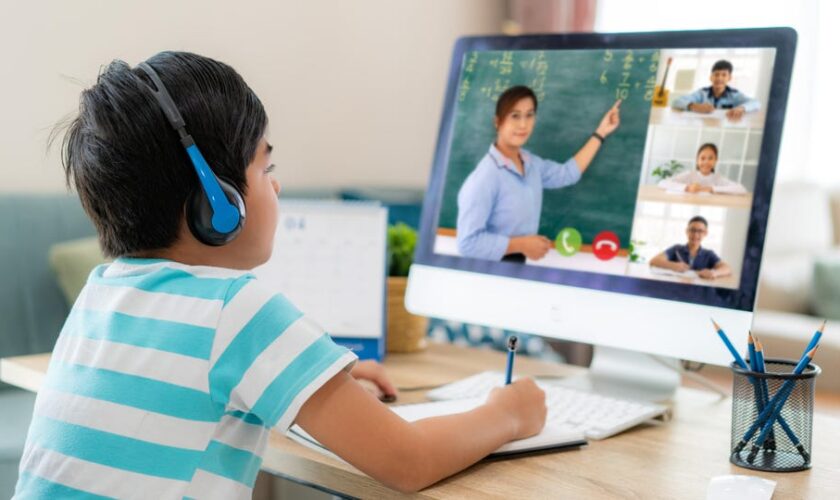Introduction: A Pathway to Possibility
Education is far more than a system of schooling or a formal requirement—it is a deeply transformative process that shapes individuals and societies alike. It is the foundation upon which civilizations thrive, innovation blossoms, and humanity progresses. In its highest form, education does not merely transmit information; it inspires curiosity, fosters understanding, and builds character. As the world continues to evolve, so too must our perception and implementation of education adapt to the demands and values of a rapidly shifting global landscape.
The Essence of Education: More Than Learning Facts
At its core, education is a journey of discovery. It stretches beyond textbooks and test scores to nurture intellectual curiosity, emotional resilience, and moral awareness. While the traditional view of education often centers on academic success, true education encompasses the development of the whole person.
Core elements of meaningful education include:
-
Critical Thinking: Encouraging learners to analyze, question, and innovate, rather than passively accept information.
-
Emotional Intelligence: Equipping individuals with empathy, self-awareness, and the ability to manage relationships constructively.
-
Ethical Foundations: Instilling values that guide behavior and decision-making in both personal and professional spheres.
-
Lifelong Curiosity: Cultivating a love for learning that extends beyond formal education into all stages of life.
Education should, above all, empower individuals to understand the world and their place within it.
Historical Evolution: From Ancient Wisdom to Modern Frameworks
The history of education reveals how societies have long valued the transfer of knowledge. From the oral traditions of indigenous tribes to the scholarly pursuits of ancient Greek academies and the meditative rigor of Indian Gurukuls, education has taken many forms throughout history.
With the advent of the printing press, access to knowledge expanded dramatically, leading to the democratization of education. The industrial revolution brought about structured schooling systems designed to meet the needs of growing economies. Yet, these systems often prioritized conformity over creativity, preparing students for obedience more than originality.
Today, the digital era is rewriting the rules once again—demanding not only new methods but also a renewed understanding of what it means to be educated.
The Digital Shift: Redefining the Educational Landscape
Technology has irreversibly altered how education is delivered and consumed. The rise of online learning platforms, artificial intelligence, and virtual collaboration tools has made learning more accessible and adaptable than ever before.
Impact of technology on education:
-
Accessibility: Students across the globe can access world-class resources regardless of location or financial background.
-
Personalization: Adaptive learning systems allow education to be tailored to individual learning speeds and styles.
-
Collaboration: Technology enables real-time interaction with peers and mentors from diverse backgrounds.
-
Innovation: Digital tools encourage creative expression and problem-solving beyond the confines of traditional classrooms.
While the integration of technology presents tremendous opportunities, it also calls for thoughtful implementation to avoid issues like digital inequality, overreliance on screens, and the loss of human connection in learning.
Challenges in Contemporary Education
Despite the advancements, education remains riddled with disparities and inefficiencies. Not every student receives the quality of education they deserve, and many educational institutions struggle to meet the needs of an increasingly diverse and complex world.
Persistent challenges include:
-
Socioeconomic Barriers: Poverty continues to limit access to quality education, particularly in developing countries.
-
Inequity in Resources: Schools in underprivileged areas often lack basic infrastructure, let alone access to modern technology.
-
Rigid Curricula: Outdated educational models fail to equip students with skills relevant to current and future job markets.
-
Mental Health Crisis: Increased pressure and lack of emotional support within educational systems contribute to growing mental health concerns among students.
Addressing these issues requires more than policy reform; it demands a cultural shift in how we value and approach education.
The Role of Educators: Guiding Lights in the Learning Journey
Teachers are the heart of any educational system. Beyond delivering lessons, they play the role of mentors, motivators, and life-shapers. The most impactful educators inspire students to think deeply, act wisely, and care deeply.
Qualities of exceptional educators:
-
Adaptability: Embracing new technologies and pedagogies to engage students effectively.
-
Compassion: Recognizing the emotional and personal struggles that can impact learning.
-
Passion for Knowledge: Demonstrating a genuine love for learning that becomes contagious.
-
Commitment to Growth: Continuously improving their craft to better serve their students.
Investing in teacher training and well-being is essential for creating meaningful, sustainable educational reform.
Lifelong Learning: A Modern Imperative
In an age defined by rapid technological advancement and social change, the idea that education ends with formal schooling is dangerously outdated. The most successful individuals today are those who continue to learn, unlearn, and relearn throughout their lives.
Modern avenues for lifelong learning:
-
Online Courses and Certifications: Platforms like Coursera, edX, and LinkedIn Learning offer flexible options for upskilling.
-
Professional Development: Many industries now prioritize continued education as part of career advancement.
-
Community Learning: Public lectures, local workshops, and peer learning initiatives foster collaborative growth.
-
Personal Enrichment: Learning for pleasure—be it a new language, instrument, or skill—nurtures mental agility and self-esteem.
Lifelong learning is not just a necessity; it is a celebration of the human capacity to grow.
Education as a Tool for Global Progress
Education holds the power to tackle some of the world’s most pressing issues. Whether combating poverty, promoting gender equality, or advancing environmental sustainability, educated populations are better equipped to find solutions and drive change.
Key contributions of education to global development:
-
Economic Growth: A skilled workforce boosts productivity and innovation.
-
Social Cohesion: Education fosters understanding across cultures and reduces conflict.
-
Public Health: Educated individuals are more likely to adopt healthy lifestyles and access healthcare.
-
Environmental Awareness: Informed citizens make more responsible choices regarding the planet’s future.
Investing in education is not just a moral imperative—it is a strategic one.
Conclusion: Educating for a Better Tomorrow
Education is both a personal right and a collective responsibility. It has the unique power to transform not just individual lives but entire communities and nations. Yet, for education to fulfill its promise, it must evolve to meet the realities of our time—embracing technology, inclusivity, and lifelong learning while preserving the human touch at its core.
Let us envision a world where every child has access to quality education, where learning is joyful and meaningful, and where the pursuit of knowledge is both a personal and societal priority. In educating minds, we empower hearts—and in doing so, we pave the way for a wiser, more compassionate world.










